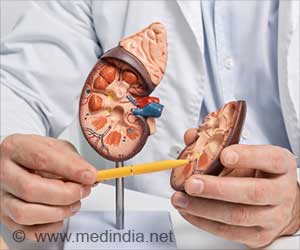US researchers have warned that carelessness during sperm selection for the intracytoplasmic sperm injection (ICSI) procedure, where a single sperm is injected into an egg to fertilise
The IVF procedure has its own demerits. Certain US researchers have warned that carelessness during sperm selection for the intracytoplasmic sperm injection (ICSI) procedure may, in fact, decrease the chances of pregnancy. The intracytoplasmic sperm injection (ICSI) procedure is where a single sperm is injected into an egg to fertilize it.
Conrado Avendano and his colleagues at the Jones Institute for Reproductive Medicine in Norfolk, Virginia, say that though the sperm chosen for the procedure may appear quite normal, many of them actually have DNA damage, and thus may reduce the likelihood of pregnancy.The researchers studied a group of infertile men with moderate and severe teratozoospermia, where most of the sperm looks abnormal.
While making a presentation at the 24th annual conference of the European Society of Human Reproduction and Embryology on Tuesday, Avendano said that embryologists would normally select the 'best looking' sperm for injection.
"This would typically be done by analyzing the sperm's shape under a microscope. A 'good' sperm by this criterion would have a regular oval head and a long straight tail. However, our research has shown that appearances can be deceptive," he said.
He said that studying ten infertile men, his team had discovered that many sperm had DNA damage, even though they seemed to be completely normal.
"In routine ICSI procedure, the embryologist chooses the best-looking sperm under the microscope, but it could be damaged. DNA-damaged sperm has a highly deleterious effect on the ability to achieve a pregnancy. Even if damaged sperm are used and the woman becomes pregnant, the chances of miscarrying are significantly higher," he said.
The researchers compared levels of DNA fragmentation in sperm from the infertile group with that from fertile men, and found that sperm with normal morphology from the latter group showed no evidence of DNA fragmentation.
However, in the infertile men, between 20 and 66 per cent of normal-looking sperm had DNA damage.
"The origin of DNA fragmentation can be multi factorial. Oxidative stress (mainly due to reproductive tract infections) and apoptosis are the most studied, but other factors as age, smoking, exposure to air pollution and abnormal testicular warming are believed to increase the proportion of sperm DNA fragmentation," said Avendano.
He revealed that his team would apply DNA fragmentation evaluation to couples with male factor infertility.
"Our preliminary results using this new evaluation method show a clear negative correlation between the percentage of DNA fragmented sperm and the embryo quality and pregnancy outcome," he said.
"Different research groups have shown that in addition to affecting normal embryonic development, fertilisation with damaged spermatozoa resulting in a live-born infant can be associated with increased chromosomal abnormalities, minor or major birth defects, and even childhood cancer. Our work has shown that normal sperm morphology alone should not be used as the unique attribute for the selection of sperm for ICSI. New methods that allow an accurate separation of sperm with intact DNA should be sought," he added.
According to the researchers, sperm biology has received less attention since the introduction and success of the ICSI technique.
"While the ICSI procedure bypasses the natural sperm selection, we believe that the deleterious effects of injecting a DNA-fragmented sperm should and can be avoided. Further research into sperm biology is essential if we are to avoid problems in the future," Avendano said.
Source-ANI
TAN/M















